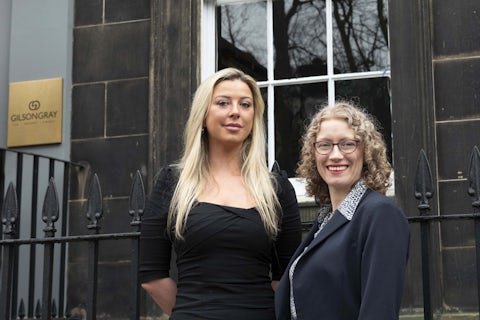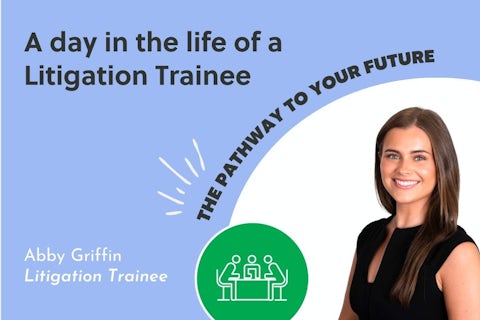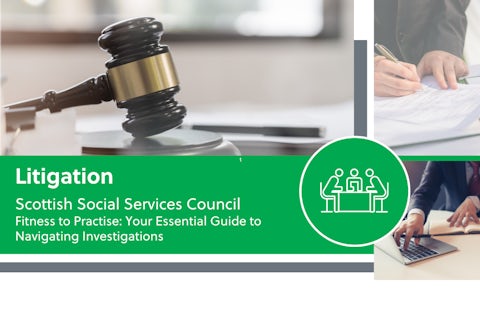In 2020 it is important to remember the centenary anniversary of a revolutionary milestone: women being afforded the right to enter the legal profession. In 1920, Madge Easton Anderson, a graduate of Glasgow University, became the first woman in Scotland and the United Kingdom to qualify and practice as a solicitor, following the introduction of the Sex Disqualification (Removal) Act 1919. The effect of the Act permitted women in the United Kingdom to finally become solicitors, barristers, advocates, and magistrates. It also enabled women to enter other professions, such as accountancy, and admitted women to the higher ranks of the civil service. The landmark Act represented the beginning of a transformative period for gender equality in the professional world.
Due to the determination and courage of the women, like Madge Easton Anderson, who paved the way for others to succeed, we have witnessed tremendous progress. In the last century, women have been afforded far greater protection in marriage and employment due to legal reform. Many women have achieved career goals that would have been unimaginable one hundred years ago, a prime example being Baroness Brenda Hale who became the first female President of UK Supreme Court in 2017. Recent statistics show that around 60% of LLB graduates in Scotland are female; 53% of solicitors in Scotland are women, and that the gender pay gap in the Scottish legal profession has almost halved since 2013, from 42% to 23% in 2018[1].
While the progress that has been made should be celebrated, it is also incredibly important to recognise the barriers that still exist. In more senior levels, gender parity is far from reflective of the composition of the legal profession, with on average women comprising only 25% of equity partners in Scottish Law Firms[2]. This of course generates an argument that the reason for such disparity between the genders at the top level is attributable to women assuming the traditional caregiving role. Such sentiment is reflected in the Law Society of Scotland’s Profile on the Profession Report 2018, with 75% of respondents to the survey indicating that fewer women reaching senior positions was due to it being difficult to reach such levels and balance having a family. However, while women should be able to make decisions in their careers respective to the needs of their families, equally they should not have to expect that such decisions will have a negative impact on career progression.
Behind balancing a family, unconscious bias was voted as the second most frequent reason for why comparatively fewer women reach senior positions in the 2018 report results. Unconscious bias is attributable to perpetuating the unfair stereotype that women are not as bright and are less career driven than men because they are innately more family orientated. As a female trainee solicitor, being constrained to this stereotype resonates with me as I have previously been subject to it, particularly in my university career. On a few occasions, I have had male friends and university colleagues “mansplain” to me legal and political concepts which I already had a good understanding of) because I had taken a view which perhaps did not coincide with their own. At a particularly memorable university networking event, a partner of an established London law firm, eagerly advised that myself and a group of female law students to apply for his firm’s summer placement scheme as “many of our previous female trainees have found their husbands at our firm”. Perhaps most shockingly, one of my halls of residence flat mates expressed his surprise when he discovered that I had chosen to study law as he thought I looked like a dumb blonde.
An important point to note is that unconscious bias is very rarely intended to be malicious. Moreover, many will not even be aware that they are guilty of it. However, this does not mean that we should not regard it as being an insignificant barrier to progression in diversity and equality. The uncomfortable truth is that almost everyone is guilty of some form of unconscious bias- whether it is towards women, or people from different religious, ethnic, or class backgrounds. This is because prejudiced stereotypes of such groups are deeply embedded in our society. Unless we educate ourselves on the issues of inequality in the legal profession, then we cannot expect to see real and fast change. In order to aid progression, we need to be more self-critical and aware of our own unconscious bias and privilege. As I write this article, I have to be mindful of my own privilege and how my experience of unconscious bias is therefore limited. Although I am among the first generation of my family to have had access to a university education, I am a white woman born into a middle class family. I consider it highly unlikely that I would have entered the legal profession with the same ease had I not been born white or had I grown up in a working-class background.
None of this is to suggest that it has been easy for people from certain backgrounds to become solicitors. Everyone has to put in the hard work to obtain the LLB and Diploma in Legal Practice, gain work experience, and polish their CV. However, we cannot be dismissive of the fact that BAME women (and BAME individuals in general) are grossly underrepresented in the legal profession, with only 4% of respondents to the 2018 report listing their ethnic group as being something other than white. This is particularly striking in consideration of the fact that BAME communities are disproportionately over-represented on the LLB per head of population. In moving forward, it is incumbent that we listen to BAME candidates who do find it significantly more difficult to enter the profession to ensure that the playing field is level.
As a woman in the formative years of her career, I am heartened to see that my profession is increasingly open to having difficult conversations surrounding inequality and underrepresentation of certain groups. Further, I am grateful that law firms in Scotland are becoming more receptive to the idea of flexible working hours. At Gilson Gray I consider myself very fortunate to work in an environment in which all of my colleagues are valued and there is a genuine commitment to put in place support networks to allow everyone to develop, whatever their personal circumstances. Many of the senior members of my team have young families and I see first-hand the willingness of the firm to support their careers.
I am hopeful that inclusive discussions on equality in the legal profession continue to have heightened emphasis in the next century, and that action will follow. We must all be committed to realise change and improve the situation for female and BAME solicitors, taking note that combating the issues of inequality in the legal profession will not only strengthen our professional standards of social justice and equal opportunity, but also lead to greater equality in wider society.
[1] All Statistics from the Law Society of Scotland’s Profile on the Profession Report 2018 and The Law Society of Scotland’s Profile on the Profession Response Report 2018
[2] Ibid.
The information and opinions contained in this blog are for information only. They are not intended to constitute advice and should not be relied upon or considered as a replacement for advice. Before acting on any of the information contained in this blog, please seek specific advice from Gilson Gray.







